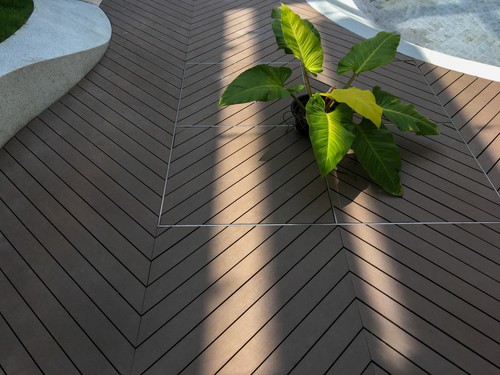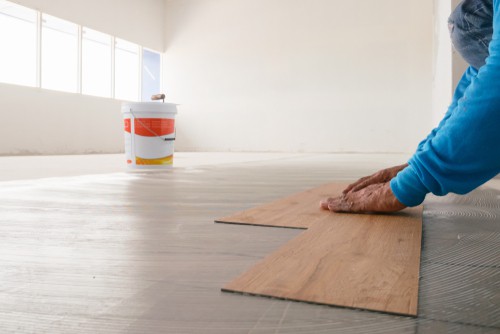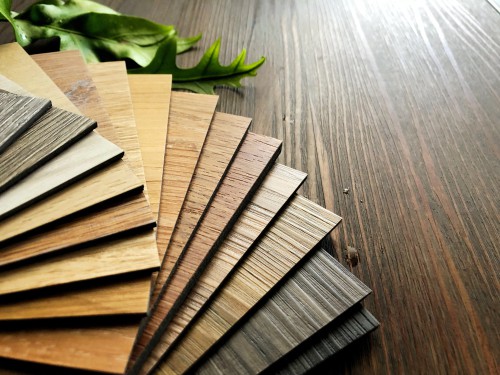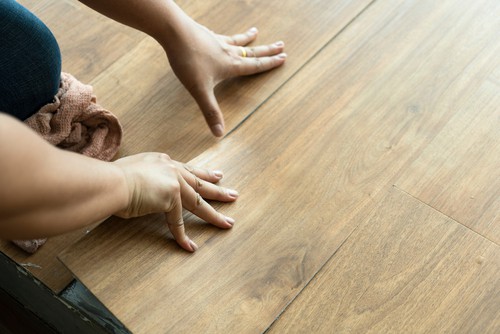
Removing Stains On Your Laminate Flooring
June 21, 2023
Maintaining the Beauty of Your Outdoor Deck
August 18, 2023Common Misconceptions about Vinyl Flooring (Must Read!)

Common Misconceptions about Vinyl Flooring
What are the common misconceptions about Vinyl flooring? In the realm of flooring options, vinyl has been gaining popularity for its practicality, versatility, and aesthetic appeal.
However, it’s not immune to misconceptions. This guide debunks common myths surrounding vinyl flooring, helping consumers make informed choices when selecting the perfect flooring solution.
Vinyl flooring has seen a surge in popularity due to its cost-effectiveness and versatility, making it a desirable option for residential and commercial spaces.
It’s essential to separate fact from fiction when considering vinyl flooring. By dispelling misconceptions, consumers can make well-informed decisions based on accurate information.
Table of Contents
Myth 1 – Vinyl Flooring Isn’t Durable
One of the most common misconceptions is that vinyl flooring is easily damaged and not durable. This notion often stems from outdated perceptions of vinyl.
Modern vinyl flooring is designed to be highly durable, with enhanced wear layers that can withstand heavy foot traffic and daily wear and tear.
Durability depends on factors like the quality of the vinyl, the wear layer thickness, and proper installation.
Myth 2: Vinyl Flooring is Only Suitable for Low-Traffic Areas

Another misconception is that vinyl is only suitable for residential settings and cannot handle the demands of high-traffic commercial spaces.
Vinyl flooring is versatile and available in different grades, suitable for various levels of foot traffic, making it a viable option for both residential and commercial use.
Vinyl is commonly used in commercial spaces such as retail stores, healthcare facilities, and hospitality venues due to its durability and ease of maintenance.
Myth 3: Vinyl Flooring Lacks Aesthetic Appeal
Some believe that vinyl lacks the aesthetic appeal and natural beauty of materials like hardwood or stone.
Modern vinyl flooring comes in various designs, colors, and patterns that can closely mimic the look of natural materials, offering both beauty and practicality.
Vinyl flooring can replicate the appearance of hardwood, tile, and even natural stone, providing the desired aesthetic without the maintenance challenges of these materials.
Myth 4: Vinyl Flooring is Harmful to Indoor Air Quality
There’s a misconception that vinyl flooring emits harmful volatile organic compounds (VOCs), contributing to poor indoor air quality.
Many modern vinyl flooring products are manufactured with low VOC emissions, contributing to improved indoor air quality and overall safety.
Consumers can choose vinyl flooring products certified for low emissions by recognized organizations, ensuring a healthy indoor environment.
Myth 5: Vinyl Flooring is Difficult to Install and Maintain

Some believe vinyl flooring requires complex installation processes, leading to higher installation costs.
Vinyl flooring offers various installation options, including click-and-lock systems, adhesive-backed sheets, and tiles, making it accessible for DIY enthusiasts and professionals alike.
Maintaining vinyl flooring is straightforward, usually involving regular sweeping and occasional mopping. Its protective wear layer resists stains and scratches, reducing the need for extensive maintenance.
Myth 6: Vinyl Flooring is Prone to Water Damage
One misconception is that vinyl flooring is easily damaged by water and moisture, limiting its use in wet areas.
Waterproof and water-resistant vinyl flooring options are available, making vinyl suitable for areas prone to moisture, such as bathrooms and kitchens.
Vinyl’s water-resistant properties make it an ideal choice for basements, laundry rooms, and other spaces where exposure to moisture is a concern.
Myth 7: Vinyl Flooring is Expensive
Some individuals assume that vinyl flooring is expensive and beyond their budget. Vinyl flooring offers a wide range of price points, making it accessible to consumers with different budget constraints.
When considering the cost of vinyl flooring, it’s essential to factor in its durability, low maintenance requirements, and long lifespan, which contribute to its long-term value.
Myth 8: Vinyl Flooring is Not Eco-Friendly

A prevalent misconception is that vinyl flooring harms the environment due to its synthetic nature.
Many vinyl manufacturers prioritize sustainability by using recycled materials, minimizing waste, and implementing environmentally conscious production practices.
Some vinyl products can be recycled at the end of their lifespan, reducing their environmental impact and contributing to a circular economy.
Myth 9: Vinyl Flooring Can’t Compete with Hardwood or Tile
There’s a misconception that vinyl flooring is a subpar substitute for traditional materials like hardwood or tile.
Vinyl flooring offers benefits such as moisture resistance, durability, and cost-effectiveness, making it a competitive choice compared to traditional materials.
Consumers should weigh their specific needs, budget, and desired aesthetic when selecting flooring materials.
Myth 10: Vinyl Flooring is Out of Style
Some individuals wrongly believe that vinyl flooring is outdated and lacks the style and trends of contemporary flooring options.
Modern vinyl flooring reflects current design trends, offering a variety of styles that cater to different aesthetics and preferences.
Vinyl’s design flexibility and ability to mimic various materials ensure that it remains a timeless and stylish flooring option.
FAQs: Addressing Common Questions about Vinyl Flooring

Is vinyl flooring suitable for high-traffic areas?
Modern vinyl flooring is designed to withstand heavy foot traffic, making it suitable for residential and commercial high-traffic areas.
Can vinyl flooring mimic the look of hardwood or natural stone?
Vinyl flooring comes in a wide range of designs that closely replicate the appearance of hardwood, tile, and natural stone.
What is the environmental impact of vinyl flooring?
Many vinyl manufacturers prioritize sustainability by using recycled materials and implementing eco-friendly production practices.
Is vinyl flooring easy to install for DIY enthusiasts?
Yes, vinyl flooring offers user-friendly installation methods, making it accessible for both DIY enthusiasts and professionals.
How does vinyl compare to other flooring materials in terms of cost?
Vinyl flooring offers various price points, accommodating different budgets. Its long-term value and low maintenance costs contribute to its affordability.
Is vinyl flooring safe for indoor air quality?
Modern vinyl flooring products are manufactured with low VOC emissions, contributing to improved indoor air quality.
Can vinyl flooring withstand water exposure?
Yes, waterproof and water-resistant vinyl flooring options are suitable for areas prone to moisture.
Does vinyl flooring require extensive maintenance?
Thanks to its protective wear layer, vinyl flooring requires simple maintenance, including regular sweeping and occasional mopping.
What design options are available in vinyl flooring?
Vinyl flooring comes in various designs, colors, and patterns, offering various aesthetic choices to suit different preferences.
Is vinyl flooring a sustainable choice for the long term?
Many vinyl manufacturers prioritize sustainability, making vinyl flooring a viable option for environmentally conscious consumers.
Common Misconceptions about Vinyl Flooring – Conclusion

Dispelling myths about vinyl flooring empowers consumers to make informed decisions. Vinyl flooring’s durability, versatility, and aesthetic appeal make it a practical and stylish choice for various spaces.
Are you looking for a professional and reliable laminate flooring supplier or installation service? Contact us today!



